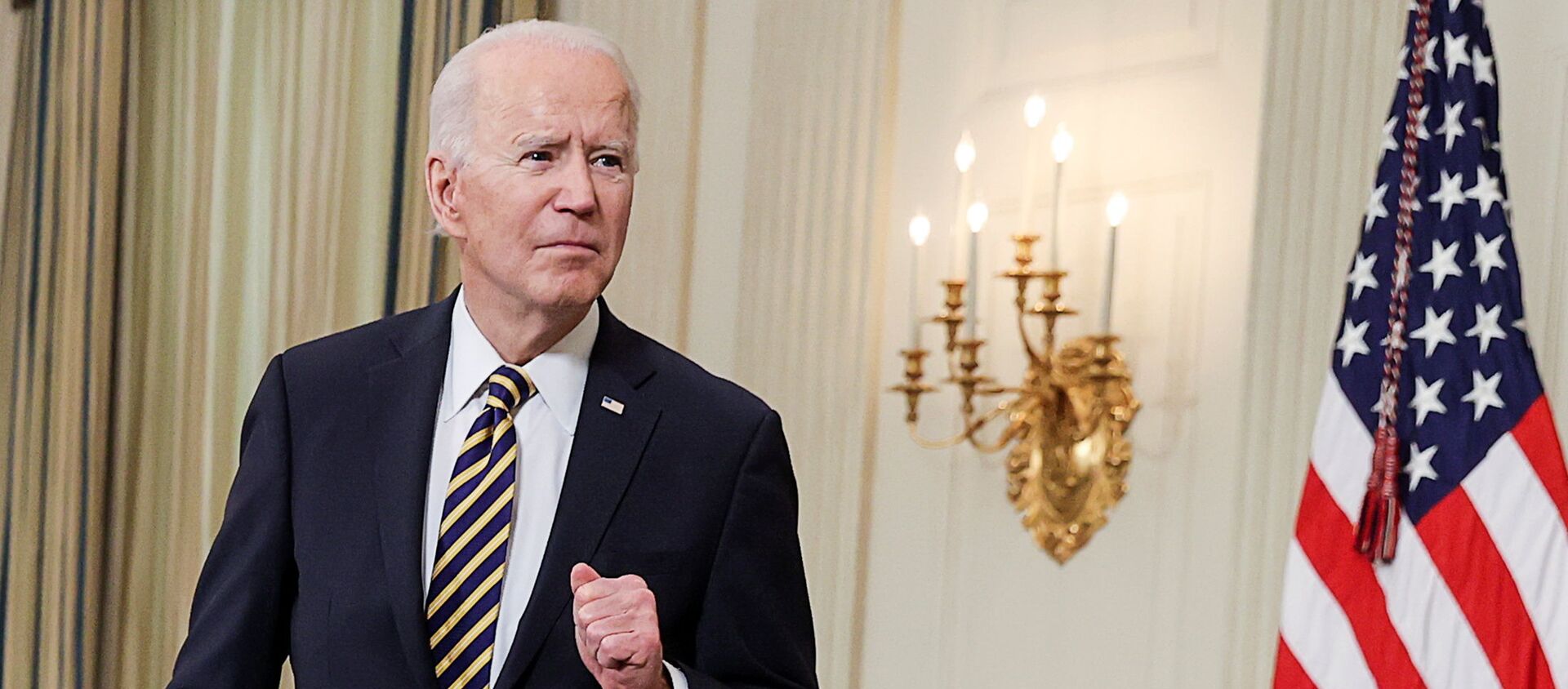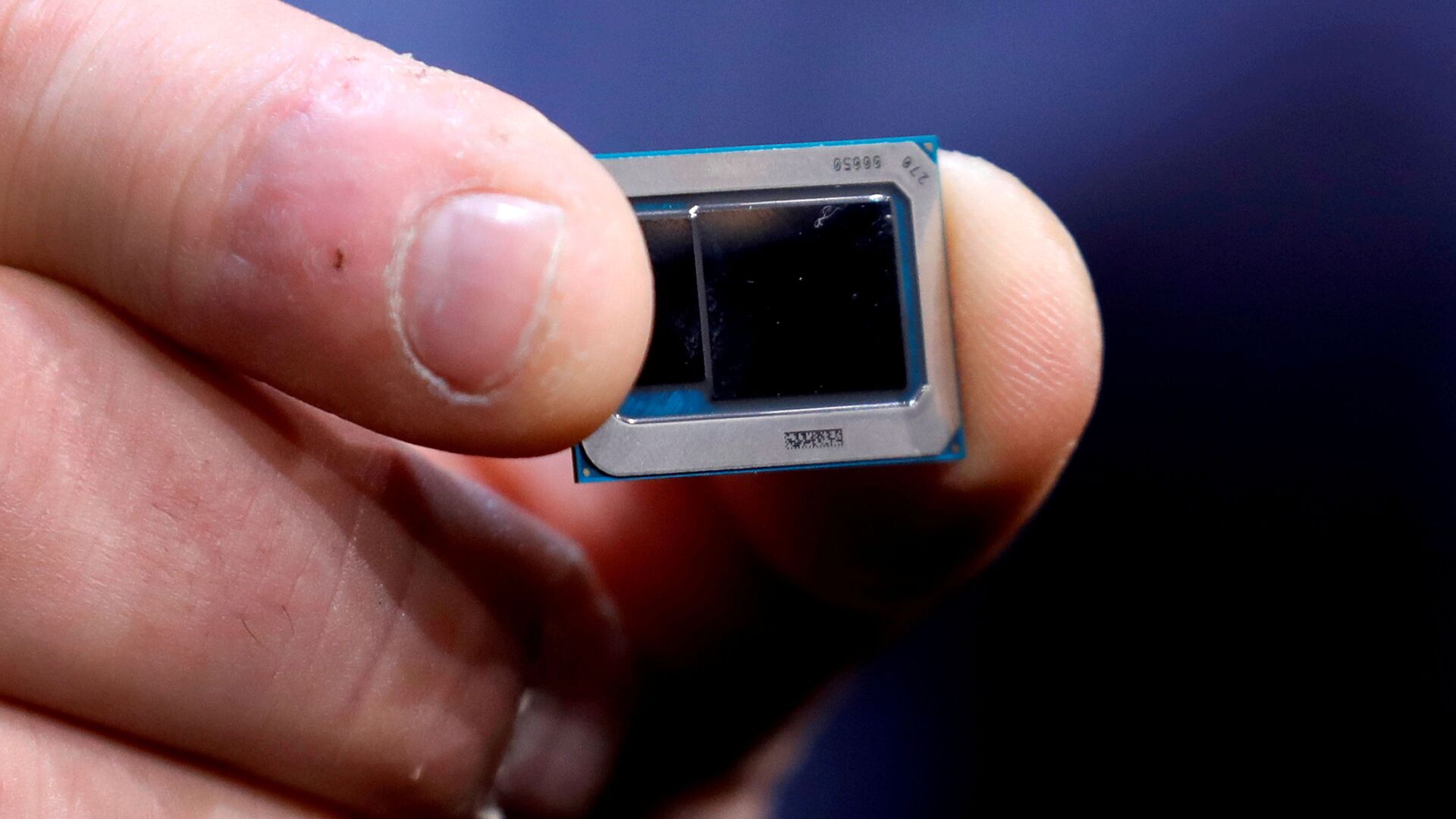https://sputnikglobe.com/20211007/intel-blames-brexit-for-decision-not-to-build-semiconductor-plant-in-uk-amid-global-chip-crunch-1089740942.html
Intel Blames Brexit for Decision Not to Build Semiconductor Plant in UK Amid Global Chip Crunch
Intel Blames Brexit for Decision Not to Build Semiconductor Plant in UK Amid Global Chip Crunch
Sputnik International
The United Kingdom withdrew from the European Union in January 2020 after 47 years of membership. The withdrawal took place following a 2016 referendum in... 07.10.2021, Sputnik International
2021-10-07T12:25+0000
2021-10-07T12:25+0000
2021-10-07T14:45+0000
intel
brexit
https://cdn1.img.sputnikglobe.com/img/07e5/07/19/1083460503_0:163:3061:1885_1920x0_80_0_0_3927172cd3a3418fcdfae11ea2e3a449.jpg
Global microchip manufacturing giant Intel has blamed Brexit for its decision not to build a major new chipmaking factory in the UK.Speaking to the BBC, Intel CEO Pat Gelsinger suggested that although the UK “would have been a site that we would have considered” for a major new plant while it was a member of the EU, “post-Brexit…we’re looking at EU countries.”Intel “absolutely would have been seeking sites for consideration,” Gelsinger stressed. “I have no idea whether we would have had a superior site from the UK. But we now have about 70 proposals for sites across Europe from maybe 10 different countries. We’re hopeful that we’ll get to agreement on a site, as well as support from the EU…before the end of this year.”The unbuilt shiny new Intel microchip manufacturing facility is the latest economic casualty of Brexit, which is estimated to have already cost the UK’s economy the equivalent of over $1 billion a week and counting, including $24.5 billion in lost trade and a whopping $680.5 million on day-to-day administrative costs between 2020 and 2021.Chip CrunchIntel’s search for new chip production locations is Europe is part of the company’s ambitious plans to adjust to the global shortage of semiconductors, which has affected a broad range of technologically complex goods, from computers and mobile devices to automobiles and industrial equipment.Earlier this year, Gelsinger warned that it could take “years” to address current shortfalls.Intel is looking to spend as much as $95 billion to build and upgrade chip-making facilities in Europe, on top of the almost $20 billion it has earmarked to expand manufacturing capacity in Arizona, in a bid to reduce the West’s reliance on foundries in Taiwan, China, and South Korea – which currently account for nearly 80 percent of the world’s microchip market. Taiwan’s contractor chipmaker Taiwan Semiconductor Manufacturing Co (TSMC) alone commands over 50 percent of the world’s pure wafer market.About 12 percent of the world’s semiconductors are made in the US today, with the EU accounting for another 10 percent.US and European efforts to catch up to Asia are expected to face tough competition, with TSMC planning to commit $100 billion on expanding production over the next there years, while Samsung has announced plans to make some $205 billion in investments on its own chip-making production.Global chip shortages have been attributed to a range of factors, including sanctions by the Trump administration against major Chinese technology companies, a global spike in demand for home electronics thanks to Covid lockdowns and work from home restrictions, and various efforts by governments and big business to push so-called "Smart Homes," "Smart Cities," etc.The White House characterised the global semiconductor shortage a “national security issue” in April, and France, other European countries, and the EU have made plans to try to scale back dependence on Asia and increase domestic production. In June, Congress passed a bill to provide over $200 billion in assistance to US chipmakers, with $53 billion of that set aside specifically for semiconductor production and research.The EU is working on its own legislation to provide financial support for regional semiconductor makers, with lawmakers pushing a European Chips Act. The price tag to taxpayers of the proposal is not yet clear but Brussels has already boasted that its coronavirus recovery package has included $150 billion for the so-called "Digital Compass" initiative, with part of these funds intended to support domestic semiconductor manufacturing.
https://sputnikglobe.com/20210302/china-aims-for-tech-independence-amid-looming-cut-throat-race-with-us-1082233043.html
https://sputnikglobe.com/20210225/joe-biden-signs-order-to-avoid-us-chip-crisis-but-what-caused-the-global-semiconductor-shortage-1082182571.html
Sputnik International
feedback@sputniknews.com
+74956456601
MIA „Rosiya Segodnya“
2021
News
en_EN
Sputnik International
feedback@sputniknews.com
+74956456601
MIA „Rosiya Segodnya“
Sputnik International
feedback@sputniknews.com
+74956456601
MIA „Rosiya Segodnya“
intel, brexit
Intel Blames Brexit for Decision Not to Build Semiconductor Plant in UK Amid Global Chip Crunch
12:25 GMT 07.10.2021 (Updated: 14:45 GMT 07.10.2021) The United Kingdom withdrew from the European Union in January 2020 after 47 years of membership. The withdrawal took place following a 2016 referendum in which a slim majority of about 52 percent of Brits voted to leave the bloc.
Global microchip manufacturing giant Intel has blamed Brexit for its decision not to build a major new chipmaking factory in the UK.
Speaking to the BBC, Intel CEO Pat Gelsinger
suggested that although the UK “would have been a site that we would have considered” for a major new plant while it was a member of the EU, “post-Brexit…we’re looking at EU countries.”
Intel “absolutely would have been seeking sites for consideration,” Gelsinger stressed. “I have no idea whether we would have had a superior site from the UK. But we now have about 70 proposals for sites across Europe from maybe 10 different countries. We’re hopeful that we’ll get to agreement on a site, as well as support from the EU…before the end of this year.”
The unbuilt shiny new Intel microchip manufacturing facility is the latest economic casualty of Brexit, which is estimated to have already cost the UK’s economy the equivalent of over
$1 billion a week and counting, including
$24.5 billion in lost trade and a whopping
$680.5 million on day-to-day administrative costs between 2020 and 2021.
Intel’s search for new chip production locations is Europe is part of the company’s ambitious plans to adjust to the
global shortage of semiconductors, which has affected a broad range of technologically complex goods, from computers and mobile devices to automobiles and industrial equipment.
Earlier this year, Gelsinger warned that it could take
“years” to address current shortfalls.
Intel is looking to spend as much as $95 billion to build and upgrade chip-making facilities in Europe, on top of the almost $20 billion it has earmarked to expand manufacturing capacity in Arizona, in a bid to reduce the West’s reliance on foundries in Taiwan, China, and South Korea – which currently account for nearly 80 percent of the world’s microchip market. Taiwan’s contractor chipmaker Taiwan Semiconductor Manufacturing Co (TSMC) alone
commands over 50 percent of the world’s pure wafer market.
About 12 percent of the world’s semiconductors are made in the US today, with the EU accounting for another 10 percent.
US and European efforts to catch up to Asia are expected to face tough competition, with TSMC planning to commit
$100 billion on expanding production over the next there years, while Samsung has announced plans to make some
$205 billion in investments on its own chip-making production.
Global chip shortages have been attributed to a range of factors, including sanctions by the Trump administration against major Chinese technology companies, a global spike in demand for home electronics thanks to Covid lockdowns and work from home restrictions, and various efforts by governments and big business to push so-called "Smart Homes," "Smart Cities," etc.

25 February 2021, 11:49 GMT
The White House characterised the global semiconductor shortage a
“national security issue” in April, and
France, other European countries, and the EU have made plans to try to scale back dependence on Asia and increase domestic production. In June, Congress passed a bill to provide over $200 billion in assistance to US chipmakers, with
$53 billion of that set aside specifically for semiconductor production and research.
The EU is working on its own legislation to provide financial support for regional semiconductor makers, with lawmakers pushing a
European Chips Act. The price tag to taxpayers of the proposal is not yet clear but Brussels has already boasted that its coronavirus recovery package has included
$150 billion for the so-called "Digital Compass" initiative, with part of these funds intended to support domestic semiconductor manufacturing.





